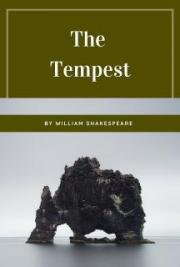DRAMATIS PERSONAE
Oedipus.
The Priest of Zeus.
Creon.
Chorus of Theban Elders.
Teiresias.
Jocasta.
Messenger.
Herd of Laius.
Second Messenger.
Scene: Thebes. Before the Palace of Oedipus.
Suppliants of all ages are seated round the altar at the palace doors, at their head a PRIEST OF ZEUS. To them enter OEDIPUS.
OEDIPUS
My children, latest born to Cadmus old,
Why sit ye here as suppliants, in your hands
Branches of olive filleted with wool?
What means this reek of incense everywhere,
And everywhere laments and litanies?
Children, it were not meet that I should learn
From others, and am hither come, myself,
I Oedipus, your world-renowned king.
Ho! aged sire, whose venerable locks
Proclaim thee spokesman of this company,
Explain your mood and purport. Is it dread
Of ill that moves you or a boon ye crave?
My zeal in your behalf ye cannot doubt;
Ruthless indeed were I and obdurate
If such petitioners as you I spurned.
PRIEST
Yea, Oedipus, my sovereign lord and king,
Thou seest how both extremes of age besiege
Thy palace altars--fledglings hardly winged,
and greybeards bowed with years; priests, as am I
of Zeus, and these the flower of our youth.
Meanwhile, the common folk, with wreathed boughs
Crowd our two market-places, or before
Both shrines of Pallas congregate, or where
Ismenus gives his oracles by fire.
For, as thou seest thyself, our ship of State,
Sore buffeted, can no more lift her head,
Foundered beneath a weltering surge of blood.
A blight is on our harvest in the ear,
A blight upon the grazing flocks and herds,
A blight on wives in travail; and withal
Armed with his blazing torch the God of Plague
Hath swooped upon our city emptying
The house of Cadmus, and the murky realm
Of Pluto is full fed with groans and tears.
Therefore, O King, here at thy hearth we sit,
I and these children; not as deeming thee
A new divinity, but the first of men;
First in the common accidents of life,
And first in visitations of the Gods.
Art thou not he who coming to the town
of Cadmus freed us from the tax we paid
To the fell songstress? Nor hadst thou received
Prompting from us or been by others schooled;
No, by a god inspired (so all men deem,
And testify) didst thou renew our life.
And now, O Oedipus, our peerless king,
All we thy votaries beseech thee, find
Some succor, whether by a voice from heaven
Whispered, or haply known by human wit.
Tried counselors, methinks, are aptest found [1]
To furnish for the future pregnant rede.
Upraise, O chief of men, upraise our State!
Look to thy laurels! for thy zeal of yore
Our country's savior thou art justly hailed:
O never may we thus record thy reign:--
"He raised us up only to cast us down."
Uplift us, build our city on a rock.
Thy happy star ascendant brought us luck,
O let it not decline! If thou wouldst rule
This land, as now thou reignest, better sure
To rule a peopled than a desert realm.
Nor battlements nor galleys aught avail,
If men to man and guards to guard them tail.
OEDIPUS
Ah! my poor children, known, ah, known too well,
The quest that brings you hither and your need.
Ye sicken all, well wot I, yet my pain,
How great soever yours, outtops it all.
Your sorrow touches each man severally,
Him and none other, but I grieve at once
Both for the general and myself and you.
Therefore ye rouse no sluggard from day-dreams.
Many, my children, are the tears I've wept,
And threaded many a maze of weary thought.
Thus pondering one clue of hope I caught,
And tracked it up; I have sent Menoeceus' son,
Creon, my consort's brother, to inquire
Of Pythian Phoebus at his Delphic shrine,
How I might save the State by act or word.
And now I reckon up the tale of days
Since he set forth, and marvel how he fares.
'Tis strange, this endless tarrying, passing strange.
But when he comes, then I were base indeed,
If I perform not all the god declares.
PRIEST
Thy words are well timed; even as thou speakest
That shouting tells me Creon is at hand.
OEDIPUS
O King Apollo! may his joyous looks
Be presage of the joyous news he brings!
PRIEST
As I surmise, 'tis welcome; else his head
Had scarce been crowned with berry-laden bays.
OEDIPUS
We soon shall know; he's now in earshot range.
[Enter CREON]
My royal cousin, say, Menoeceus' child,
What message hast thou brought us from the god?
CREON
Good news, for e'en intolerable ills,
Finding right issue, tend to naught but good.
OEDIPUS
How runs the oracle? thus far thy words
Give me no ground for confidence or fear.
CREON
If thou wouldst hear my message publicly,
I'll tell thee straight, or with thee pass within.
OEDIPUS
Speak before all; the burden that I bear
Is more for these my subjects than myself.
CREON
Let me report then all the god declared.
King Phoebus bids us straitly extirpate
A fell pollution that infests the land,
And no more harbor an inveterate sore.
OEDIPUS
What expiation means he? What's amiss?
CREON
Banishment, or the shedding blood for blood.
This stain of blood makes shipwreck of our state.
OEDIPUS
Whom can he mean, the miscreant thus denounced?
CREON
Before thou didst assume the helm of State,
The sovereign of this land was Laius.
OEDIPUS
I heard as much, but never saw the man.
CREON
He fell; and now the god's command is plain:
Punish his takers-off, whoe'er they be.
OEDIPUS
Where are they? Where in the wide world to find
The far, faint traces of a bygone crime?
CREON
In this land, said the god; "who seeks shall find;
Who sits with folded hands or sleeps is blind."
OEDIPUS
Was he within his palace, or afield,
Or traveling, when Laius met his fate?
CREON
Abroad; he started, so he told us, bound
For Delphi, but he never thence returned.
OEDIPUS
Came there no news, no fellow-traveler
To give some clue that might be followed up?
CREON
But one escape, who flying for dear life,
Could tell of all he saw but one thing sure.
OEDIPUS
And what was that? One clue might lead us far,
With but a spark of hope to guide our quest.
CREON
Robbers, he told us, not one bandit but
A troop of knaves, attacked and murdered him.
OEDIPUS
Did any bandit dare so bold a stroke,
Unless indeed he were suborned from Thebes?
CREON
So 'twas surmised, but none was found to avenge
His murder mid the trouble that ensued.
OEDIPUS
What trouble can have hindered a full quest,
When royalty had fallen thus miserably?
CREON
The riddling Sphinx compelled us to let slide
The dim past and attend to instant needs.
OEDIPUS
Well, I will start afresh and once again
Make dark things clear. Right worthy the concern
Of Phoebus, worthy thine too, for the dead;
I also, as is meet, will lend my aid
To avenge this wrong to Thebes and to the god.
Not for some far-off kinsman, but myself,
Shall I expel this poison in the blood;
For whoso slew that king might have a mind
To strike me too with his assassin hand.
Therefore in righting him I serve myself.
Up, children, haste ye, quit these altar stairs,
Take hence your suppliant wands, go summon hither
The Theban commons. With the god's good help
Success is sure; 'tis ruin if we fail.
[Exeunt OEDIPUS and CREON]
PRIEST
Come, children, let us hence; these gracious words
Forestall the very purpose of our suit.
And may the god who sent this oracle
Save us withal and rid us of this pest.
[Exeunt PRIEST and SUPPLIANTS]
CHORUS
(Str. 1)
Sweet-voiced daughter of Zeus from thy gold-paved Pythian shrine
Wafted to Thebes divine,
What dost thou bring me? My soul is racked and shivers with fear.
(Healer of Delos, hear!)
Hast thou some pain unknown before,
Or with the circling years renewest a penance of yore?
Offspring of golden Hope, thou voice immortal, O tell me.
(Ant. 1)
First on Athene I call; O Zeus-born goddess, defend!
Goddess and sister, befriend,
Artemis, Lady of Thebes, high-throned in the midst of our mart!
Lord of the death-winged dart!
Your threefold aid I crave
From death and ruin our city to save.
If in the days of old when we nigh had perished, ye drave
From our land the fiery plague, be near us now and defend us!
(Str. 2)
Ah me, what countless woes are mine!
All our host is in decline;
Weaponless my spirit lies.
Earth her gracious fruits denies;
Women wail in barren throes;
Life on life downstriken goes,
Swifter than the wind bird's flight,
Swifter than the Fire-God's might,
To the westering shores of Night.
(Ant. 2)
Wasted thus by death on death
All our city perisheth.
Corpses spread infection round;
None to tend or mourn is found.
Wailing on the altar stair
Wives and grandams rend the air--
Long-drawn moans and piercing cries
Blent with prayers and litanies.
Golden child of Zeus, O hear
Let thine angel face appear!
(Str. 3)
And grant that Ares whose hot breath I feel,
Though without targe or steel
He stalks, whose voice is as the battle shout,
May turn in sudden rout,
To the unharbored Thracian waters sped,
Or Amphitrite's bed.
For what night leaves undone,
Smit by the morrow's sun
Perisheth. Father Zeus, whose hand
Doth wield the lightning brand,
Slay him beneath thy levin bold, we pray,
Slay him, O slay!
(Ant. 3)
O that thine arrows too, Lycean King,
From that taut bow's gold string,
Might fly abroad, the champions of our rights;
Yea, and the flashing lights
Of Artemis, wherewith the huntress sweeps
Across the Lycian steeps.
Thee too I call with golden-snooded hair,
Whose name our land doth bear,
Bacchus to whom thy Maenads Evoe shout;
Come with thy bright torch, rout,
Blithe god whom we adore,
The god whom gods abhor.
[Enter OEDIPUS.]
OEDIPUS
Ye pray; 'tis well, but would ye hear my words
And heed them and apply the remedy,
Ye might perchance find comfort and relief.
Mind you, I speak as one who comes a stranger
To this report, no less than to the crime;
For how unaided could I track it far
Without a clue? Which lacking (for too late
Was I enrolled a citizen of Thebes)
This proclamation I address to all:--
Thebans, if any knows the man by whom
Laius, son of Labdacus, was slain,
I summon him to make clean shrift to me.
And if he shrinks, let him reflect that thus
Confessing he shall 'scape the capital charge;
For the worst penalty that shall befall him
Is banishment--unscathed he shall depart.
But if an alien from a foreign land
Be known to any as the murderer,
Let him who knows speak out, and he shall have
Due recompense from me and thanks to boot.
But if ye still keep silence, if through fear
For self or friends ye disregard my hest,
Hear what I then resolve; I lay my ban
On the assassin whosoe'er he be.
Let no man in this land, whereof I hold
The sovereign rule, harbor or speak to him;
Give him no part in prayer or sacrifice
Or lustral rites, but hound him from your homes.
For this is our defilement, so the god
Hath lately shown to me by oracles.
Thus as their champion I maintain the cause
Both of the god and of the murdered King.
And on the murderer this curse I lay
(On him and all the partners in his guilt):--
Wretch, may he pine in utter wretchedness!
And for myself, if with my privity
He gain admittance to my hearth, I pray
The curse I laid on others fall on me.
See that ye give effect to all my hest,
For my sake and the god's and for our land,
A desert blasted by the wrath of heaven.
For, let alone the god's express command,
It were a scandal ye should leave unpurged
The murder of a great man and your king,
Nor track it home. And now that I am lord,
Successor to his throne, his bed, his wife,
(And had he not been frustrate in the hope
Of issue, common children of one womb
Had forced a closer bond twixt him and me,
But Fate swooped down upon him), therefore I
His blood-avenger will maintain his cause
As though he were my sire, and leave no stone
Unturned to track the assassin or avenge
The son of Labdacus, of Polydore,
Of Cadmus, and Agenor first of the race.
And for the disobedient thus I pray:
May the gods send them neither timely fruits
Of earth, nor teeming increase of the womb,
But may they waste and pine, as now they waste,
Aye and worse stricken; but to all of you,
My loyal subjects who approve my acts,
May Justice, our ally, and all the gods
Be gracious and attend you evermore.
CHORUS
The oath thou profferest, sire, I take and swear.
I slew him not myself, nor can I name
The slayer. For the quest, 'twere well, methinks
That Phoebus, who proposed the riddle, himself
Should give the answer--who the murderer was.
OEDIPUS
Well argued; but no living man can hope
To force the gods to speak against their will.
CHORUS
May I then say what seems next best to me?
OEDIPUS
Aye, if there be a third best, tell it too.
CHORUS
My liege, if any man sees eye to eye
With our lord Phoebus, 'tis our prophet, lord
Teiresias; he of all men best might guide
A searcher of this matter to the light.
OEDIPUS
Here too my zeal has nothing lagged, for twice
At Creon's instance have I sent to fetch him,
And long I marvel why he is not here.
CHORUS
I mind me too of rumors long ago--
Mere gossip.
OEDIPUS
Tell them, I would fain know all.
CHORUS
'Twas said he fell by travelers.
OEDIPUS
So I heard,
But none has seen the man who saw him fall.
CHORUS
Well, if he knows what fear is, he will quail
And flee before the terror of thy curse.
OEDIPUS
Words scare not him who blenches not at deeds.
CHORUS
But here is one to arraign him. Lo, at length
They bring the god-inspired seer in whom
Above all other men is truth inborn.
[Enter TEIRESIAS, led by a boy.]
OEDIPUS
Teiresias, seer who comprehendest all,
Lore of the wise and hidden mysteries,
High things of heaven and low things of the earth,
Thou knowest, though thy blinded eyes see naught,
What plague infects our city; and we turn
To thee, O seer, our one defense and shield.
The purport of the answer that the God
Returned to us who sought his oracle,
The messengers have doubtless told thee--how
One course alone could rid us of the pest,
To find the murderers of Laius,
And slay them or expel them from the land.
Therefore begrudging neither augury
Nor other divination that is thine,
O save thyself, thy country, and thy king,
Save all from this defilement of blood shed.
On thee we rest. This is man's highest end,
To others' service all his powers to lend.
TEIRESIAS
Alas, alas, what misery to be wise
When wisdom profits nothing! This old lore
I had forgotten; else I were not here.
OEDIPUS
What ails thee? Why this melancholy mood?
TEIRESIAS
Let me go home; prevent me not; 'twere best
That thou shouldst bear thy burden and I mine.
OEDIPUS
For shame! no true-born Theban patriot
Would thus withhold the word of prophecy.
TEIRESIAS
Thy words, O king, are wide of the mark, and I
For fear lest I too trip like thee...
OEDIPUS
Oh speak,
Withhold not, I adjure thee, if thou know'st,
Thy knowledge. We are all thy suppliants.
TEIRESIAS
Aye, for ye all are witless, but my voice
Will ne'er reveal my miseries--or thine. [2]
OEDIPUS
What then, thou knowest, and yet willst not speak!
Wouldst thou betray us and destroy the State?
TEIRESIAS
I will not vex myself nor thee. Why ask
Thus idly what from me thou shalt not learn?
OEDIPUS
Monster! thy silence would incense a flint.
Will nothing loose thy tongue? Can nothing melt thee,
Or shake thy dogged taciturnity?
TEIRESIAS
Thou blam'st my mood and seest not thine own
Wherewith thou art mated; no, thou taxest me.
OEDIPUS
And who could stay his choler when he heard
How insolently thou dost flout the State?
TEIRESIAS
Well, it will come what will, though I be mute.
OEDIPUS
Since come it must, thy duty is to tell me.
TEIRESIAS
I have no more to say; storm as thou willst,
And give the rein to all thy pent-up rage.
OEDIPUS
Yea, I am wroth, and will not stint my words,
But speak my whole mind. Thou methinks thou art he,
Who planned the crime, aye, and performed it too,
All save the assassination; and if thou
Hadst not been blind, I had been sworn to boot
That thou alone didst do the bloody deed.
TEIRESIAS
Is it so? Then I charge thee to abide
By thine own proclamation; from this day
Speak not to these or me. Thou art the man,
Thou the accursed polluter of this land.
OEDIPUS
Vile slanderer, thou blurtest forth these taunts,
And think'st forsooth as seer to go scot free.
TEIRESIAS
Yea, I am free, strong in the strength of truth.
OEDIPUS
Who was thy teacher? not methinks thy art.
TEIRESIAS
Thou, goading me against my will to speak.
OEDIPUS
What speech? repeat it and resolve my doubt.
TEIRESIAS
Didst miss my sense wouldst thou goad me on?
OEDIPUS
I but half caught thy meaning; say it again.
TEIRESIAS
I say thou art the murderer of the man
Whose murderer thou pursuest.
OEDIPUS
Thou shalt rue it
Twice to repeat so gross a calumny.
TEIRESIAS
Must I say more to aggravate thy rage?
OEDIPUS
Say all thou wilt; it will be but waste of breath.
TEIRESIAS
I say thou livest with thy nearest kin
In infamy, unwitting in thy shame.
OEDIPUS
Think'st thou for aye unscathed to wag thy tongue?
TEIRESIAS
Yea, if the might of truth can aught prevail.
OEDIPUS
With other men, but not with thee, for thou
In ear, wit, eye, in everything art blind.
<







